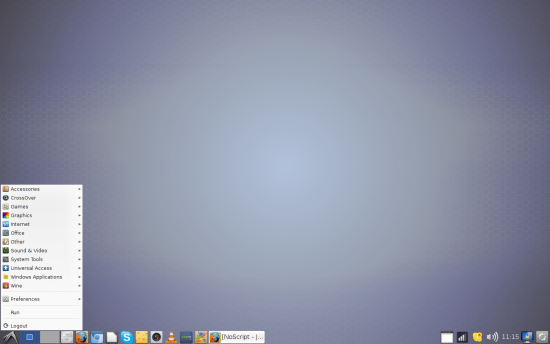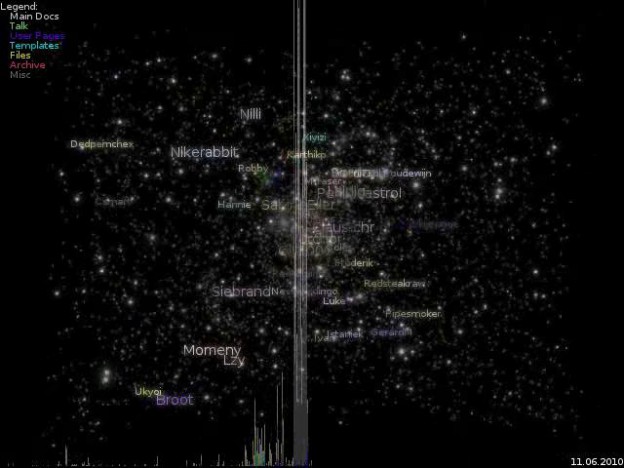How to save your data when things go wrong
March 2nd, 2013 by Luis Augusto Fretes Cuevas
A couple of days ago a very close friend of mine committed a terrible mistake: He formatted all of his drive when he was trying to install Linux. Soon he was consumed by despair as the installation failed and he was left with no operating system and just an empty option in the boot menu labeled “Windows 7”, a misleading entry merely pointing out to Windows’s 100 MB recovery partition. Not a single personal file survived, all of his music, documents and pictures were now lost. In his desperation he booted into Linux again using his live CD and more… Continue Reading
How to: Get your D-link N150 wireless adapter to work.
February 4th, 2013 by Luis Augusto Fretes Cuevas
Sometimes apparently simple things turn out to be a little bit harder than expected, among those is usually the use of USB wireless adapters. Everyone in the community will always recommend you to check, when you’re about to buy new hardware, if it works out of the box with Netrunner. While that’s undoubtedly a wise advice is clearly meant for people who already use Netrunner, newcomers don’t buy new hardware to test it (at least not the majority of them) they just install it in the current PC. So if you have a D-Link Wireless N150 USD adapter (dwa-125) and you’re… Continue Reading
The quest for a dock
February 1st, 2013 by Luis Augusto Fretes Cuevas
I’ll confess something: I like docks. Am I weird? I don’t know, although if the three most popular operating systems in the world are any indicative the answer is no. In the last two years Canonical created Unity, which includes a dock-taskbar hybrid, and Microsoft followed suite, and then Gnome 3, and almost all other Desktop Environments have some sort of dock. Needless to say, Apple uses a dock in Mac OS X. But not KDE. While reproducing Microsoft’s hybrid taskbar is as easy as pie finding a dock is rather hard. Not to sound negative, what they’ve done is… Continue Reading
Linux and the Go-To-Market strategy
January 31st, 2013 by Luis Augusto Fretes Cuevas
Linux has yet to achieve a significant piece of the PC market, unlike what it has done in the mobile space. So the question is why doesn’t it happen in the PC industry? Some people argue that Linux is too hard, or that it doesn’t have all the apps people need or all the games or what have you, they will quickly point out that there’s no Photoshop, or Premiere, or Skyrim. But is that true? Is that the reason? That seems unlikely considering how small is the percentage of users that actually care about any of those apps, for… Continue Reading
Introducing LXDE
January 28th, 2013 by Dedoimedo
Let us be non-mainstream. In the world of Linux desktop environments, Lightweight X11 Desktop Environment (LXDE) is not your typical first or second choice. Most people will mention Gnome, KDE, perhaps Unity. You may have heard of Cinnamon and MATE lately, and Xfce is also a solid, longtime niche player. LXDE keeps slipping under the radar. The thing is, without decent financial backing by the big names, it is very hard creating and maintaining a robust and bug-free desktop environment that can address the needs of the common user, if a Linux user can ever be classified as common in… Continue Reading
Ubuntu for phones: Teaching the tech giants how is done
January 23rd, 2013 by Luis Augusto Fretes Cuevas
Is probably no mystery by now that I follow the mobile industry closely so I was naturally very excited when Ubuntu for phones was announced back when the year was one day old. Much has been said in those days, mostly about what a fierce path is ahead of Canonical if they want to impact in any significant way the market and while I have a lot to say about that I rather write today about something happier, namely that Ubuntu for phones has done what Apple and Google couldn’t: Designing a button-less touch interface. Before getting into the praise… Continue Reading
Open WebOS and the Power of Qt
January 6th, 2013 by Admin
Qt technology gets used in more and more instances, as the Ubuntu Phone, Jolla and Open WebOS, which can be seen running on a Nexus 7 here:
A Happy 2013 with a special fireworks showing 4 Years of KDE contributions
January 2nd, 2013 by Admin
KDE Userbase Contributions: (right corner at bottom shows the timeline 10-06-2010 – availability of the translate extension for mediawiki. )








